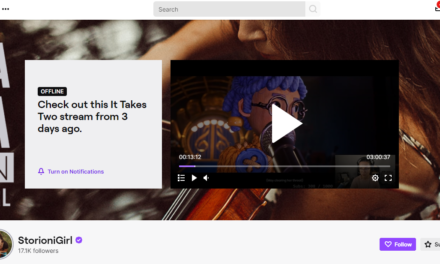While affiliate marketing’s popularity is on the uptick, it’s more important than ever to recognize that there are certain guidelines for publishers to follow to maintain their unique voice while promoting the products they love. To find success with affiliate links, they must blend seamlessly and naturally into your content. Here are six strategies to implement affiliate marketing links into your content while still maintaining your integrity as an author.
Only Back Products You Would Recommend to a Friend
This should come as a no brainer, but it’s worth being explicitly clear. Your authenticity and credibility are everything on the internet–it’s why you have an audience. Treat your readers with the same respect as you would a close friend. If you wouldn’t strongly recommend a product to your friends, don’t promote it to your readers. While the products you use and recommend may not necessarily garnish the highest commission rates in the market, don’t let that deter you. Your enthusiasm for them should be more convincing than a mediocre endorsement for a product you know nothing about. For products you spend time vetting and testing, you’re actually doing your audience a favor by sharing your honest opinion and personal experience.
Be a Trustworthy Source
In the same vein, while it may seem easy to only talk about a product’s benefits, you want to keep your reviews as unbiased as possible. Your job is not to sound like an ad put out by the company, or only provide marketing copy straight from the brand. The value you add is sharing a genuine experience with the product. This means talking about both the good and the bad. The pros and the cons. As an expert in the field, what makes this brand better than another brand? Think like a consumer: what you would want to see in a review to make an informed, educated decision about a purchase?
Don’t Be Swayed by the Dollar Signs
If you’ve spent years building your reputation and authority as a subject matter expert, it’s not worth sacrificing your brand to make a quick buck. Different companies run different high-value affiliate promotions each week, but if a product doesn’t match your site’s tone and messaging, it’s not worth diluting your brand to try to promote it. Typically, it’s better to stay within the scope of your industry because that’s what your audience is interested in and expects. That’s not to say there aren’t clever ways to integrate cross-niche products if you’re thoughtful and intentional with your content strategy. A travel site promoting fitness products may seem random and out of place if you don’t connect the dots. However, talking about handy snacks on-the-go and workouts you can do anywhere to keep your energy up while exploring new places could be a more natural tie-in if you word it right.
Strike a Balance Between Sponsored and Unsponsored
While making as much money as possible can sound enticing, to be a successful affiliate you must prioritize quality over quantity. It’s important to adopt the mindset that more links don’t necessarily mean more sales; it’s all about finding the right offers that match your audience. You also don’t want every article to sound 100% sponsored. Choose your placements sparingly and deliberately: not every article needs affiliate links at all. If a link doesn’t fit naturally, don’t force it.
Certain Content Types Lend Themselves Better to Affiliate Marketing
It is much easier to incorporate affiliate links into product review posts because you’re already discussing or comparing products. In that case, a link to a product you’re mentioning seems natural. The same is true for gift guides, as you’re already promoting commercial items, so your end-users will want more information on the products you’re recommending.
Always Disclose When Affiliate Links are On a Page
To comply with FTC guidelines, affiliates must disclose the nature of any business relationship within their site. According to ipage.com, “review sites should clearly state how reviews are composed and checked, and whether and how commission or conversion rates influenced the presentations, including ratings or rankings.” Not only does the law require it, but as a user it feels good to know that the author of the site is reliable. To reiterate, treat your audience like your friends–have the same respect for them, and it will benefit you in the long run.






